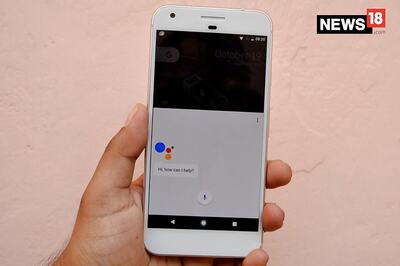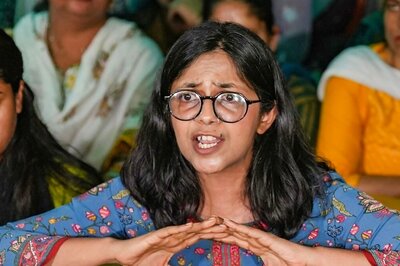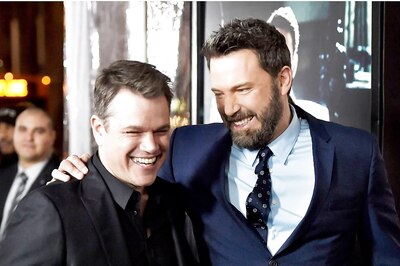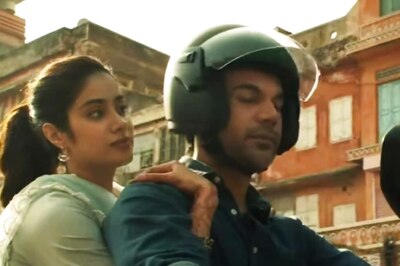
views
New Delhi: “The value of a man was reduced to his immediate identity and nearest possibility. To a vote. To a number. To a thing. Never was a man treated as a mind. As a glorious thing made up of star dust. In every field, in studies, in streets, in politics, and in dying and living.”
These words by Rohith Vemula, says 22-year-old Divya Kandukuri, are what her initiative Blue Dawn stands for. The freelance journalist, who dropped out of college because of her struggle with mental health, is now reaching out to the marginalised to support them in their battle.
“I have been going through a lot of trauma and pain and noticed that there is a huge lack of support system around me. Everybody was facing their own struggle within the community. By community, I mean Bahujans, the marginalised and the oppressed. I have been saved by dear ones at crucial points where I was giving up,” she tells News18.
The lack of support that she faced made her think about Blue Dawn. In the two months since she started it, Kandukuri has reached out to medical professionals and doctors, many of whom have agreed to lend support to others in the community.
“I took the name Blue Dawn because the colour represents our Bahujan politics, our anti-caste politics, Phule-Ambedkarite politics. Through this initiative, we are not just talking among ourselves, we are also trying to gather resources and get medical professionals on-board who can offer free or affordable healthcare,” she says.
While Kandukuri feels that the discussion about mental health in the country is anyway abysmal, she fears the worst for those from the backward castes and the queer.
“They are not treated well in government hospitals. I have seen it, but well, nobody reports on it. To escape this treatment, they come to private hospitals. They have to compromise on so many other essential expenses to be able to afford treatment in private clinics and big hospitals.
“Even in private hospitals, doctors aren’t sensitive; they are casteist and queerphobic. My first psychiatrist told me I was overthinking, lazy and just complaining because I didn’t want to work hard,” she adds.
The 22-year-old then narrates a particular incident where a doctor, who was also a family friend, threatened to inform her kin about her queerness. “I ran away from institutions, doctors, therapists because I knew it was only worsening my health,” she says.
She had no access to therapy and psychiatric treatment and had no clue about borderline personality disorder till she was diagnosed with it.
“The language of mental illnesses is so alien to us, especially when we come from towns and villages. We just know that there are either mad people or sane people and no in-betweens. Even in schools, there is no chapter on what mental illness, therapy and counselling are. There is always a scary silence around this topic. Also, we have been told by everybody around us that caste is a reality of this country and we have to make peace with it,” she adds.
Several people, including medical professionals who identify themselves as “anti-caste”, “anti-oppression” and understand structural issues, have reached out to Kandukuri after she launched Blue Dawn.
“We have collated a list of medical professionals and I appeal to others to join this initiative. There are many people who haven’t joined the official Blue Dawn group but have approached me through personal email or social media and are seeking help now,” she says.
Those who have sought help, she adds, have similar issues if not the same and there is always a clear pattern. “Of course, everybody’s struggle is their own with its own dimensions but stories of growing up in a gruesome environment, seeing violence, facing corporal punishment as a child resonate. The major similarity is, of course, the caste oppression.
“I have been traumatised by ‘everyday casteism’ and I understand the struggles of those reaching out to me. How people treat you when you go to their houses, how they treat their domestic workers, how they talk about reservation and students who avail of them, how they mock you for not being fluent in English. This traumatises you and kills you from inside like slow poison,” she says.
Many from the community have told Kandukuri how they feel alienated when they enter academic spaces as first or second generation learners — how other students keep “othering” them, calling them reserved quota or mocking their English and clothing.
“People don’t have basic ethics where you treat a fellow human being without reducing them to their immediate identity,” says the 22-year-old.
She further explains that people have written to her about being treated differently by their professors in classrooms. “When a student from a marginalised section takes his life, refrain from calling it a suicide. It should be called an institutional murder. Who killed Anitha? Who killed Rohith Vemula?” she asks.
“There is constant pressure on people from underprivileged castes that you have to be thick-skinned, strong, always ready to fight or get used to the oppression and casteist remarks. We want everyone to wake up to a free dawn,” she says.



















Comments
0 comment